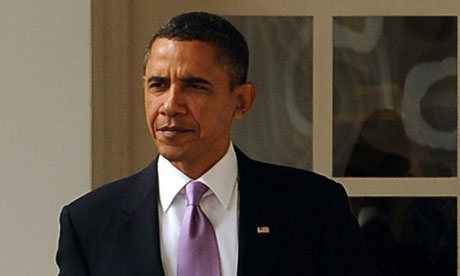
In 1996, an unknown American political commentator, writing as "Anonymous", published an unputdownable portrait of Bill Clinton's scramble to the top of the greasy pole. Primary Colors was sharp and witty; its author was obviously on the inside track. Here was the truth that only fiction could tell. Together with the fascinating phenomenon of Bill Clinton himself, a scriptwriter's dream, it possibly inspired The West Wing and certainly breathed new life into an old genre. Only six months after publication was it finally revealed that the author was the journalist and columnist Joe Klein.
Almost a generation on, the White House is again occupied by a character you could hardly make up, a man, moreoever, who has confessed in his own autobiography that he had ambitions to be a novelist. It was only a matter of time before the Obama administration – political milestone or historic tragedy? – inspired someone to reprise Primary Colors.
There was, of course, speculation. Was it Klein again? (Stout denials.) Or, from inside Obama's circle, David Plouffe or Robert Gibbs, the White House press spokesman? Or even the president himself? The truth turns out to be more mundane. The author of O is almost certainly John McCain's ghostwriter Mark Salter, a professional politico trying to turn a quick buck. But one thing is certain: this "Anonymous" is no Joe Klein. Leaving aside 350-odd pages of lifeless prose ("At this point four years ago, O had begun to dislike almost everything about campaigning"), Anonymous Redux has made three mistakes which are, collectively, fatal to the project.
First, O is a faction, but it's also a fantasy. Primary Colors took the reader inside a thrilling campaign that had already happened. O describes the presidential campaign of 2012 in which the Obama character competes against "Terrific" Morrison, a one-term governor with a military past, a hybrid of McCain and Mitt Romney.
Second, having chosen to make up Obama's political future, "Anonymous" reveals himself or herself to have no grasp of narrative. O has about as much suspense as the Washington telephone directory. Actually, less: the DC phone book would at least hold out the promise of some interesting characters.
This is the third great weakness of O: its characterisation is as wooden as its prose. But its most serious offence is that, even with all the advantages of fiction, it fails to gives us a believable, or even an interesting, portrait of Barack Hussein Obama. The press coverage of O says that "Anonymous" had "been in the room with Barack Obama" (obviously during the 2008 campaign). But what was he doing? Taking notes? Certainly he wasn't polishing a great character study. O is such a disappointment that, if Mark Salter did write it, he'll be glad to protect his reputation behind the figleaf of anonymity.

